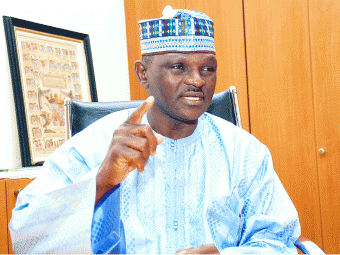This case revolves around a disputed piece of land in Lekki, Lagos, and the conflicting investigation reports issued by two different sections of the Nigerian Force Criminal Investigation Department (FCID). Dr. Eze Obidigwe, a UK-based Nigerian medical doctor and a party to the dispute, alleges that the second investigation was instigated by the opposing parties after the initial investigation implicated them in fraudulent activities. The core issue is the rightful ownership and transfer of the property, originally allocated to retired Major Hamza Al-Mustapha, the former Chief Security Officer to the late Head of State, Sani Abacha.
The first investigation, conducted by the Special Enquiry Bureau (SEB) of the FCID, concluded that Al-Mustapha had engaged in double-dealing by transferring the same plot of land to two different parties: Alex Ochonogor and Continental Properties, through which Dr. Obidigwe subsequently acquired his claim. The SEB report explicitly accused Al-Mustapha, Ochonogor, and Barrister Adebayo Akeju of conspiracy, forgery, illegal encroachment, and contempt. This led to a five-count charge against some of the involved parties being filed before a Lagos High Court. The SEB’s findings painted a picture of deliberate fraudulent activity.
However, a second investigation by the General Investigation Section (GIS) of the FCID contradicted the SEB’s findings. The GIS report claimed that Al-Mustapha never transferred the land to Dr. Obidigwe, asserting that he only signed transfer documents for Continental Properties and Alex Ochonogor. This second report effectively cleared the individuals implicated by the SEB and created significant confusion around the legitimate ownership of the property. The starkly different conclusions of the two reports raise concerns about the integrity of the investigation process.
Dr. Obidigwe has vehemently criticized the GIS report, characterizing it as “wishy-washy” and alleging that the investigation was flawed. He argues that the GIS investigators failed to perform due diligence by neglecting to interview key witnesses, verify official documents, or secure any evidence to counter the findings of the initial SEB investigation. He points out that the GIS relied heavily on the statements of the defendants and their associates, thereby creating a biased and incomplete picture of the situation. This reliance on potentially compromised sources raises questions about the objectivity and thoroughness of the GIS investigation.
Furthermore, Dr. Obidigwe contends that the GIS overlooked critical pieces of evidence, including a 2016 court order and Al-Mustapha’s repeated denials of ownership of the property after the alleged fraudulent transfer. He also accuses the GIS of failing to verify the authenticity of key documents, such as a demolition notice from the Lagos State Ministry of Lands and an affidavit of loss of original documents, which were central to the defendants’ claims. By accepting these documents at face value without independent verification, Dr. Obidigwe argues that the GIS compromised the integrity of their investigation.
Dr. Obidigwe’s most damning accusation is that Al-Mustapha himself wrote a protest letter accusing one of the defendants of selling the property without his consent. This letter, if genuine, directly contradicts the GIS report’s assertion that Al-Mustapha knowingly and willingly transferred the land to the accused individuals. The omission of this crucial piece of evidence from the GIS report further bolsters Dr. Obidigwe’s claims of a flawed and potentially manipulated investigation. The conflicting reports and the serious allegations of procedural irregularities necessitate a thorough and impartial review of the entire investigation process to determine the truth and ensure justice is served.














